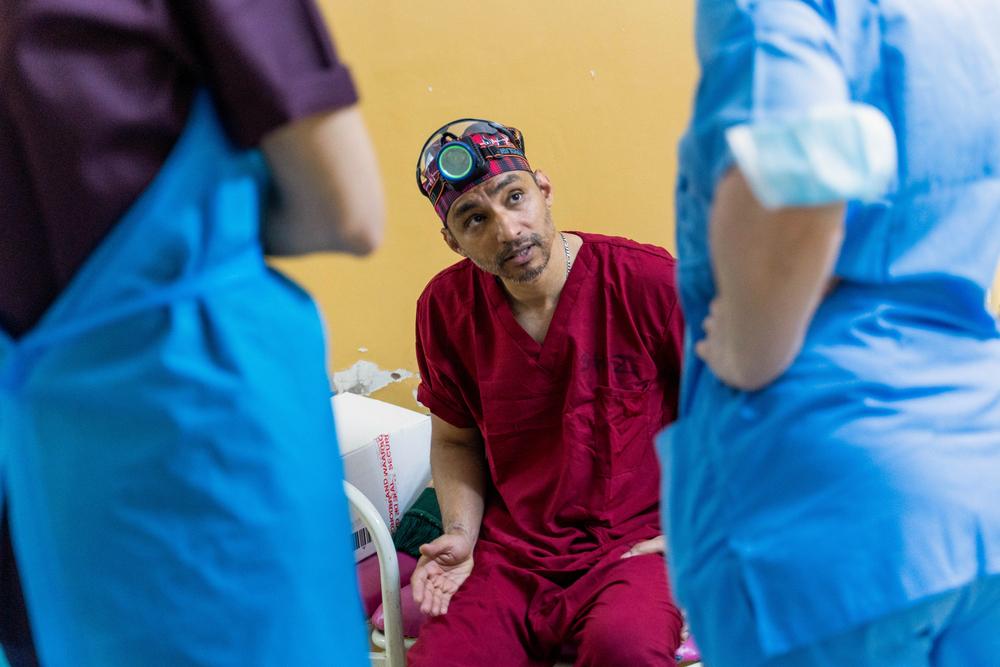Since we arrived, we have seen multiple patients with gunshot wounds and stab wounds who are highly critical and would not survive without surgery. These injuries were to the chest, to the abdomen, to the liver, to the spleen, to the kidney, to the intestine. And we’ve also performed vascular reconstructive surgery here, without which the patient would have died or would have lost a limb.
We had to set up the whole surgery unit, including the operating theatre, the emergency room – which was barely functioning – and also provide post-operative care. The biggest challenge was to have the set-up and also to have people to work with MSF to provide surgical care.
The capacity to do war surgery in this hospital was minimal. We’re quite happy that there is a good volunteer spirit among the people in this hospital but again not everyone’s accustomed to war surgery so we are working together with them to train them in managing patients who require surgery and also to provide post-operative care, which is quite critical as well.
Performing these surgeries under this austere environment is very challenging. Supplies have always been a big issue here. MSF has been bringing in supplies to the hospital with which we are able to perform life-saving surgeries.
The type of patients we’ve been seeing have complex injuries and because MSF has experience working under these conditions and managing the patients with these complex injuries, we’ve managed to provide good surgical care and some of the patients have even been discharged after major surgery. And if we can continue providing these services, we will improve the survival and also the outcomes of these patients.
